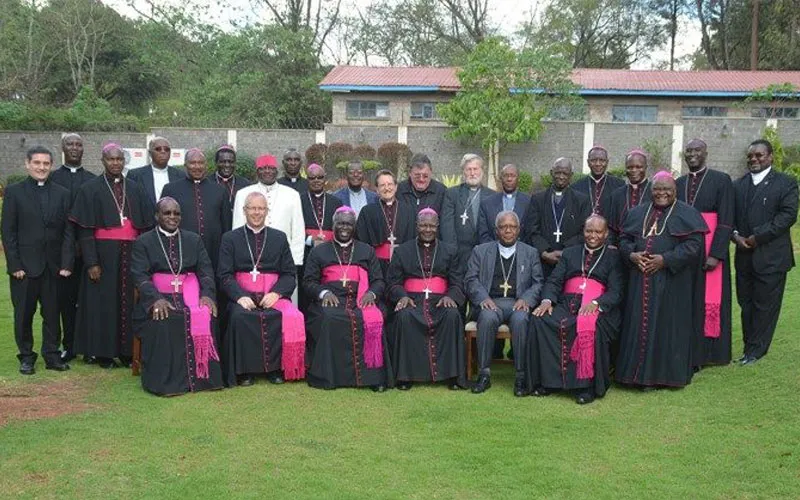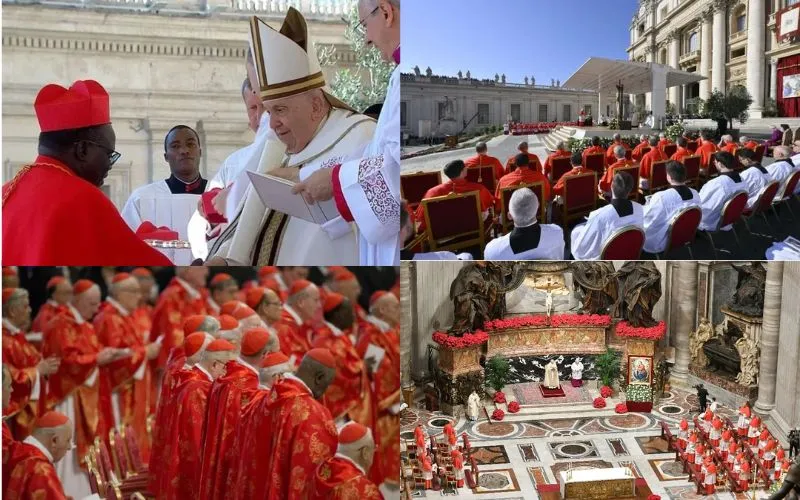“Doctors in part peg their demands on the fact that the government seems to have ready packages for the legislature but not for them,” the Bishops say adding that Kenyan legislators receive “handsome” salaries and packages while a medic who stands “on the frontline as is the case with the fight against the coronavirus spread, is hardly listened to.”
“This is the dilemma the government needs to address. It must be seen to be fair to all its civil servants,” the Bishops say in their December 9 collective statement.
KCCB members also highlight the COVID-19 pandemic, which has reportedly infected at least 89,100 people in Kenya, among them 1,545 fatalities and 69,839 recoveries as one of the seven issues they want addressed.
They bemoan the fact that many Kenyans are succumbing to COVID-19 “and staring at Poverty.”
“Our people need support from the government and all people of goodwill,” the Bishops observe in their five-page collective statement.
(Story continues below)
The add, “As we navigate the battered economy due the effects of COVID-19 in our country, we should support the medical doctors in all ways. They risk their lives for the sake of saving our lives. We must do all that is possible and within our means to provide them with the best working conditions.”
If we fail in this line, the Bishops say in reference to support toward medical doctors, “we put the lives of millions of Kenyans who cannot afford bills in private hospital at risk. We encourage constructive dialogue to resolve the outstanding differences between the doctors and the government.”
Meanwhile, the members of KCCB say that they are “cautiously happy” about the reopening of schools scheduled for January 2021. All learning institutions in Kenya were closed in March in a bid to minimize the spread of COVID-19.
“We say cautiously happy because we know that not all schools have the capacities to adequately prepare for the reopening in compliance of the COVID-19 protocols,” the Bishops explain.
They add, “We are also aware that COVID-19 has contributed to high levels of low income in families. Consequently, there are many parents who, as a matter of fact, will not be able to raise school fees for their children.”
The Bishops call on the leadership of the national and country governments in Kenya to double efforts in ensuring that “no child is exposed to the risk of contracting the deadly coronavirus” once learning resumes.
In the statement, the Bishops also decry graft in the country and say that they “take seriously the evil of corruption.”
“Corruption cuts across all sectors including our spiritual space. It has contributed to the immense suffering our people are going through in form of ethnic fighting, political killings, and exponentially increasing unemployment among others,” KCCB members lament.
They laud and acknowledge the proposals in the BBI report that suggests ways to end graft in Kenya and urge Kenyans to “heed our call, to pursue paths that lead us to unity to seek to understand the path we need to take for a better Kenya, to avoid paths of confrontation and discord.”
“We have a collective responsibility to work for peace and unity,” KCCB members say, and add, “As we pursue this path, we your shepherds promise our prayers and accompaniment.”
Magdalene Kahiu is a Kenyan journalist with passion in Church communication. She holds a Degree in Social Communications from the Catholic University of Eastern Africa (CUEA). Currently, she works as a journalist for ACI Africa.








